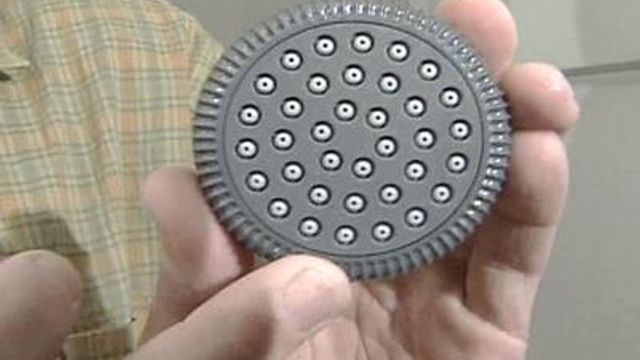Cutting Water Demand Drop by Precious Drop
From the sink to the toilet to the lawn, Raleigh has been using a record amount of water.
Ed Buchan, the city's water conservation specialist, says cutting back is key during a drought. Phil Torchio and his fiancee opened their door to him to find out the best ways to conserve.
For less than $5, you can replace your old shower head with a high-efficiency model that allows less water to flow through. Because it has smaller holes, however, you won't notice much difference in pressure, Buchan said.
“This is going to allow water to come out at pretty equal pressure to the original one, also going to have a significant water savings,” Buchan told the couple.
The same can be said for the faucet on their sink.
"This one is a lot smaller, versus this area right here where all the water can flow through,” Buchan noted of the new aerator he installed. He said it's a quick and inexpensive way to save water.
"If it only takes five minutes and it makes that much of a difference you probably save a lot of money on your water bill and also help conserve some water in Raleigh," Torchio said.
Buchan says checking for water leaks requires nothing more than food coloring you probably have your kitchen cabinet.
"You can put this in the tank of the toilet, and if you start to see the color leak into the actual bowl, you'll know you'll have a leak," Buchan said.
That leak could add up to hundreds of gallons of water each week going down the drain at a time when every drop counts.
What’s more, it's not just conserving inside, but outside as well. We use a lot of water when we irrigate our lawns.
One simple device will let you know how much water your lawn is getting — and experts say you only need about an inch a week.
If you have an irrigation system, a rain sensor is a small investment — about $30. It will automatically shut off your system if it senses rain.










